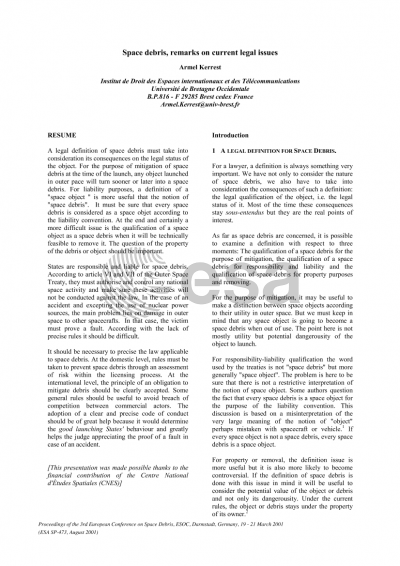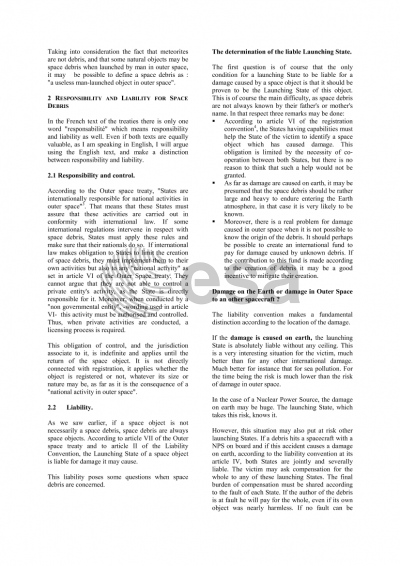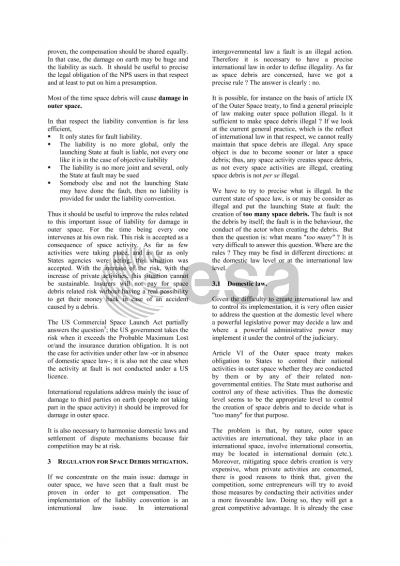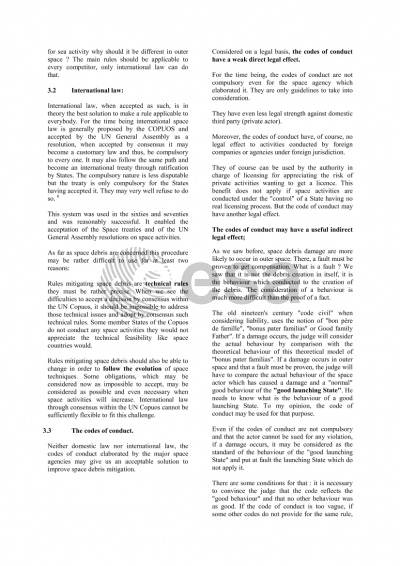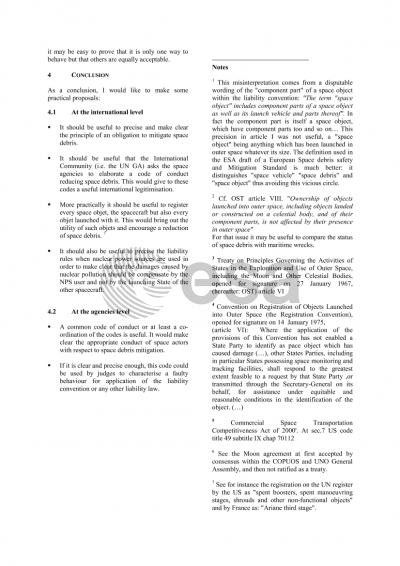Document details

Abstract
A legal definition of space debris must take into consideration its consequences on the legal status of the object. For the purpose of mitigation of space debris at the time of the launch, any object launched in outer pace will turn sooner or later into a space debris. For liability purposes, a definition of a "space object " is more useful that the notion of "space debris". It must be sure that every space debris is considered as a space objet according to the liability convention. At the end and certainly a more difficult issue is the qualification of a space object as a space debris when it will be technically feasible to remove it. The question of the property of the debris or object should be important. States are responsible and liable for space debris. According to article VI and VII of the Outer Space Treaty, they must authorise and control any national space activity and make sure these activities will not be conducted against the law. In the case of an accident and excepting the use of nuclear power sources, the main problem lies on damage in outer space to other spacecraft. In that case, the victim must prove a fault. According with the lack of precise rules it should be difficult. It should be necessary to precise the law applicable to space debris. At the domestic level, rules must be taken to prevent space debris through an assessment of risk within the licensing process. At the international level, the principle of an obligation to mitigate debris should be clearly accepted. Some general rules should be useful to avoid breach of competition between commercial actors. The adoption of a clear and precise code of conduct should be of great help because it would determine the good launching States' behaviour and greatly helps the judge appreciating the proof of a fault in case of an accident.
Preview
